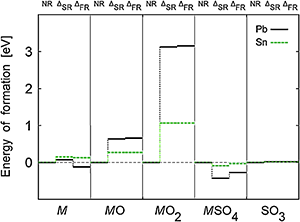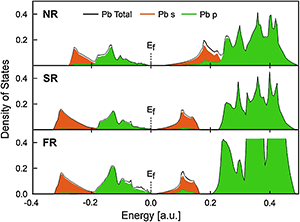Relativistic effects up the voltage in batteries
In Early 2011, researchers Rajeev Ahuja, Andreas Blomqvist and Peter Larsson at Uppsala University along with Pekka Pyykkö and Patryk Zaleski-Ejgierd at the University of Helsinki published the results of an extensive computational study on the science behind the common lead-acid battery. Their work, published in Physical Review Letters, has since received attention in Chemical and Engineering News , Nature and other leading scientific journals. In addition to drawing the fascination of the scientific literature, various other news media throughout the world, including The Economist have also picked up on the story.
The standard lead – lead oxide battery has been around for over a century. It works because its galvanic cells produce just over 2 volts apiece, and stacking these cells together in series produces a battery powerful enough to drive the motors used to start automobiles. Tin, another group 14 element, has a similar chemistry to lead, but diminished relativistic effects (when compared to lead) result in a much smaller voltage for the theoretical tin-based battery. Some of the energetic differences between lead, tin and a hypothetical lead system devoid of relativity are illustrated below.
 |
 |
|
Left: Relativistic shifts in the Ef of various Pb and Sn systems. |
Right: Total and partial Density of states for Pb in PbO2. |
These calculations were performed with SCM’s BAND program for modeling periodic systems. The ZORA method was used to efficiently take into account the relativistic effects. ZORA has long been available in SCM’s ADF program for molecular DFT, but its inclusion in the BAND program for periodic systems make it particularly well-suited for modeling the electrochemistry of extended systems comprised of heavy elements, in this case lead – lead oxide electrodes.
R. Ahuja1, A. Blomqvist, P. Larsson, P. Pyykkö, and P. Zaleski-Ejgierd, Relativity and the Lead-Acid Battery. Physical Review Letters 106, 018301 (2011).
Key conceptsBAND batteries bonding analysis periodic DFT Relativistic DFT